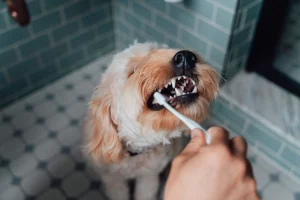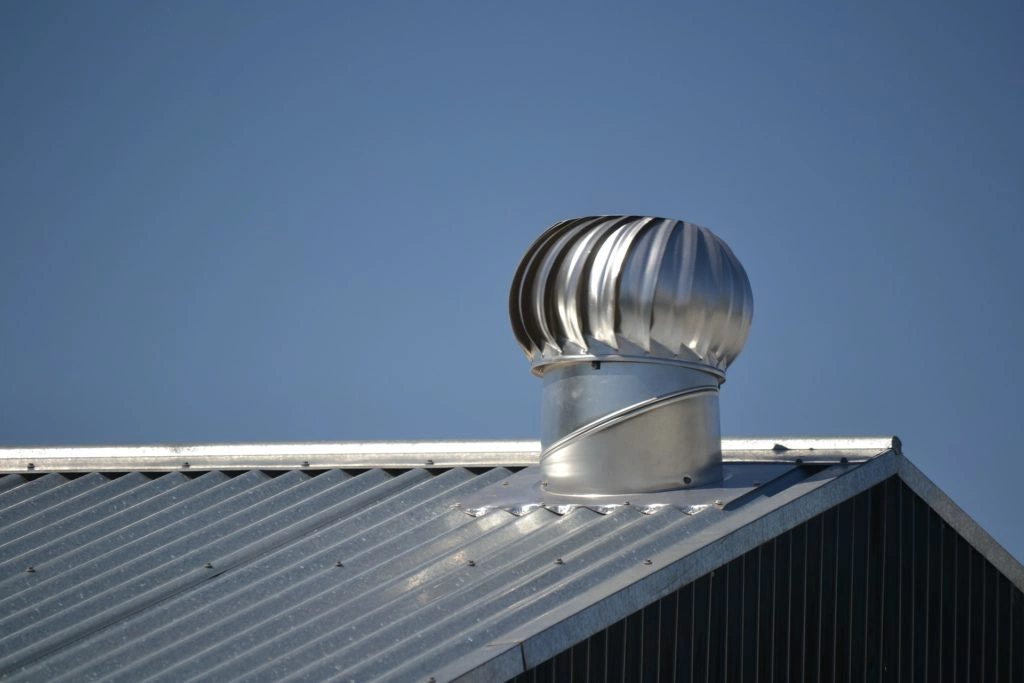Maintaining a dog’s dental health is essential for their overall well-being. Many pet owners find the process of cleaning their dog’s teeth challenging. However, with the right approach, it can be a manageable task. Understanding the necessary tools and techniques can greatly ease this responsibility. The following sections will explore effective methods to transform teeth cleaning into a more pleasant experience for both the dog and the owner.
Key Takeaways
- Create a calm environment by choosing a quiet space and using soothing tones to reduce anxiety during teeth cleaning.
- Gradually introduce the toothbrush and toothpaste to help your dog become familiar and comfortable with the process.
- Keep brushing sessions short, around two to three minutes, to maintain your dog’s comfort and prevent stress.
- Use praise and rewards, like treats, to reinforce positive behavior and create a positive association with teeth cleaning.
- Incorporate daily dental care routines, such as brushing or dental chews, to maintain oral health and reduce the need for stressful cleanings.
Understanding the Importance of Dental Care for Dogs
Why is dental care important for dogs? Just as in humans, dental health plays a significant role in a dog’s overall well-being. Regular dental care can prevent serious health issues such as periodontal disease, which can lead to pain, tooth loss, and even infections that affect critical organs. Understanding how to clean dog teeth effectively helps pet owners foster a strong bond with their furry companions while ensuring their health. A proactive approach to dental hygiene not only enhances a dog’s quality of life but also reduces the likelihood of costly veterinary interventions. By incorporating routine teeth cleaning into their care regimen, dog owners can promote long-lasting health and happiness, making it an important aspect of responsible pet ownership.
Tools and Products for Cleaning Dog Teeth
An array of tools and products is available to assist dog owners in effectively cleaning their pets’ teeth. Essential items include dog-specific toothbrushes, which have softer bristles designed for canine dental health, and enzymatic toothpaste, formulated to be safe and appealing to dogs. Finger brushes provide a gentle alternative, allowing owners to easily maneuver while cleaning. Additionally, dental chews and water additives can complement regular brushing by helping to reduce plaque and tartar buildup. For those who prefer a more hands-off approach, dental wipes are also available. Each of these tools plays a vital role in promoting oral hygiene, helping dog owners to create a comfortable and efficient routine for maintaining their pet’s dental health.
Step-by-Step Guide on How to Clean Dog Teeth
Cleaning dog teeth can be a straightforward process when approached with the right techniques and tools. First, gather essential items: dog-friendly toothpaste, a soft-bristled toothbrush, and treats for positive reinforcement. Begin by allowing the dog to sniff the toothpaste, creating a sense of familiarity. Next, gently lift the dog’s lip and brush the outer surfaces of the teeth in a circular motion, ensuring a thorough clean. Focus on the back teeth where plaque often accumulates. Keep the sessions short, around two to three minutes, to maintain the dog’s comfort. After brushing, offer a treat to reward good behavior and reinforce the experience positively. Regular cleaning, ideally two to three times a week, will help maintain ideal dental health for the dog.

Tips for Making Teeth Cleaning a Positive Experience
Establishing a positive atmosphere can greatly enhance the experience of cleaning a dog’s teeth. Pet owners should create a calm environment by choosing a quiet space and using soothing tones while interacting with their dog. Introducing the toothbrush and toothpaste gradually can help ease any anxiety; allowing the dog to sniff and taste the products fosters familiarity. Incorporating praise and rewards, such as treats or playtime, reinforces the behavior, making it a more enjoyable process. Timing the cleaning sessions after a walk or play can also contribute to a positive association. Ultimately, patience and consistency are key, as they help build trust and comfort, ensuring that cleaning dog teeth becomes a routine that both pet and owner can look forward to.
Maintaining Your Dog’s Dental Health Between Cleanings
Maintaining a dog’s dental health between professional cleanings is essential for preventing oral diseases and ensuring overall well-being. Regular at-home care can greatly contribute to a healthier mouth and happier life for dogs. Here are some effective strategies:
- Daily Brushing: Regular brushing with dog-specific toothpaste helps remove plaque and prevent tartar buildup.
- Dental Chews and Toys: Providing dental chews or toys encourages chewing, which naturally cleans teeth and promotes gum health.
- Routine Dental Checks: Owners should regularly check their dog’s mouth for signs of dental issues, such as bad breath, swollen gums, or difficulty eating.
Frequently Asked Questions
How Often Should I Clean My Dog’s Teeth?
The recommended frequency for cleaning a dog’s teeth is ideally two to three times per week. Regular dental care not only promotes oral health but also enhances the overall well-being of the beloved pet.
Can I Use Human Toothpaste for My Dog?
Using human toothpaste for dogs is not recommended. It often contains xylitol or fluoride, which can be toxic to pets. Instead, specialized dog toothpaste is formulated to be safe and effective for canine dental care.
What if My Dog Resists Teeth Cleaning?
When a dog resists teeth cleaning, patience is essential. Gradual introduction of the process, using positive reinforcement and appealing flavors, can help alleviate anxiety and encourage cooperation, fostering a more enjoyable experience for both dog and owner.
Are Dental Treats Effective for Cleaning Dog Teeth?
Dental treats can be effective for cleaning dog teeth, as they often contain ingredients designed to reduce plaque and tartar buildup. However, they should complement regular brushing for ideal dental health in dogs.
When Should I Schedule Professional Dental Cleanings?
Scheduling professional dental cleanings should occur annually, or biannually for breeds prone to dental issues. Regular check-ups guarantee peak oral health and prevent serious conditions, fostering a sense of community among responsible pet owners.
Conclusion
To summarize, maintaining a dog’s dental health is essential for their overall well-being. By understanding the importance of regular dental care and utilizing appropriate tools, pet owners can make the process both effective and enjoyable. A calm approach, combined with positive reinforcement, fosters a stress-free environment for both the dog and the owner. With consistent brushing and additional dental aids, caregivers can guarantee their furry companions enjoy healthy teeth and gums for years to come.
You May Also Like To Read:



